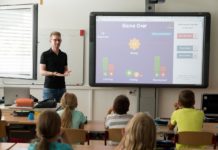It’s fascinating to learn how the mind retains, processes, and decodes the information to embrace knowledgeable behaviors and develop insightful opinions. Did you know that new information, experiences, and memories promote the development of new neural connections within the human brain? This process is known as brain neuroplasticity, and it allows brain cells to become more efficient at sending and receiving information.
Educational psychology is one of the domains focusing on learning experiences to promote academic success. Educational psychologists study how students learn, process, and analyze information to improve learning experiences and promote favorable outcomes.
Modern-day education sectors are increasingly complex, with numerous educators advocating different teaching approaches and educational resources. Given the overwhelming variety of approaches and techniques, how can teachers determine the right strategies for their students? This area is where educational psychologists step in to offer valuable insight into learner traits and teaching methodologies.
Keep reading to learn more about the role and applications of educational psychology in defining learning experiences.
Understanding Learning Needs & Designing Instructional Techniques
Psychology is grounded in the individuality of each personality and mind, and educational psychologists investigate the unique learning needs of students. Psychologists rely on various human developmental theories to understand needs, cognitive aptitudes, attention spans, and learning behaviors. This insight is channeled into designing instructional techniques, teaching resources, and lesson plans to satisfy student needs.
Suppose your interests lie in investigating the cognitive and emotional responses involved in learning mathematical concepts. In that case, you can apply various learning theories to launch an empirical investigation across multiple schools. Aspiring researchers should consider pursuing an educational psychology degree to equip themselves with advanced research tools and psychological training.
An MA in educational psychology will offer in-depth training in applying psychological theories in real-world educational settings. Professionals can focus on the cognitive and emotional learning processes or devote their academic attention to social learning. A master’s program offers numerous opportunities to develop core competencies by choosing specializations that align with your professional ambitions.
For instance, professionals can choose to focus on children, teenagers, or adult students’ learning and educational development. Professionals working closely with schools and local communities have much to gain by adding a master’s in educational psychology to their resume. Consider it a stepping stone towards leadership roles and impactful research-driven contributions to improving learning experiences.
Improving Learning Experiences & Educational Outcomes
Educational psychologists investigate various teaching and learning methods, such as classroom interactions, social learning, and self-learning. Professionals dissect instructional methodologies and processes to predict, observe and analyze educational outcomes. They also investigate learning outcomes based on the learner’s personality traits and cultural and socio-economic backgrounds. These psychologists launch investigations to understand the effects of various teaching practices.
For instance, how does the learner’s cultural background impact their ability to retain and analyze new information? Does the time of the day when a lesson is taught affect the students’ ability to retain complex concepts? How do gender and age impact a student’s ability to learn a new language or skill? What kind of challenges have students faced during the transition from brick-and-mortar classrooms to remote learning spaces?
These questions are a few examples of the psychological investigations led by educational psychologists to understand learning behaviors and outcomes. Professionals work in various settings, such as governmental education research facilities, schools and colleges, community-based centers, and private research banks.
Educational psychology research endeavors revolve around improving learning experiences to help students enjoy favorable outcomes. Some researchers focus on students from underserved communities and public institutions, while others investigate the academic outcomes of differently-abled children.
Applying Learning Theories to Teaching Strategies
Educational psychologists apply various learning and developmental theories to shed light on the mental and emotional processes involved in retaining information. One prominent theory is the behavioral perspective that offers insight into how humans learn behaviors.
According to the behavioral perspective, conditioning helps us develop behaviors and habits. And psychologists who apply the behavioral perspective utilize operant conditioning principles to investigate and explain learning outcomes. For instance, the behavioral perspective encourages teachers to reward their students for promoting positive learning outcomes. This relationship between rewards and positive reinforcement has led to predominantly used classroom reward systems.
Critics of behavioral psychology find resourceful insights by applying theories of cognitive development. However, educational psychologists often criticize the behavioral perspective for its numerous limitations. Professionals note that the behavioral approach is focused entirely on behaviors, excluding the impact of crucial factors like cognition and emotions.
Educational psychologists commonly apply the stages of cognitive development, coined by renowned psychologist Jean Piaget, to explain intellectual growth in children. The stages of cognitive development serve as an invaluable resource in designing academic resources and lesson plans for various age groups.
Investigating the Impact of Social & Cultural Experiences
Educational psychologists focus on social, cultural, and life experiences on learning behaviors and outcomes. Professionals use cultural, social, and lifestyle cues to understand why some students perform better than others. Our cultural backgrounds, social settings, life experiences, and overall life quality profoundly impact our learning outcomes and academic journey.
The constructivist approach has gained incredible traction amongst scholars investigating the cultural and social influences on learning outcomes in recent years. Psychologists also launch inquiries into the academic achievements and outcomes across urban and rural societies. These professionals also investigate the impacts of racial-ethnic backgrounds on academic performance and access to educational resources.
Some researchers utilize the experiential perspective to investigate the interactions between life experiences and new information. Psychologists apply the experiential perspective to understand how learners’ life experiences impact their ability to retain and process new concepts. Some researchers combine constructivist and experiential approaches with cognitive theories to study students’ thoughts, emotions, and experiences.
How do these investigations into feelings, cognitive processes, and behaviors contribute to improvements in the education sector? Educational psychology research evaluates the effectiveness of teaching methodologies for a diverse population of students. These investigations shape research-led improvements to enhance and improve teaching tools, resources, and learning environments.
Final Thoughts
The contributions of educational psychologists are visible in all advancements and improvements that shaped modern-day learning environments.
As an aspiring educational psychologist, you can steer your career in any direction that aligns with your core interests. For instance, you can work with teachers to improve instructional processes or with elementary school children to facilitate learning.









